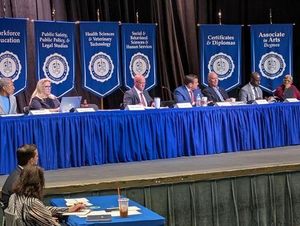Tulsi Gabbard, the former Hawaii congresswoman and recent pick by Donald Trump as his nominee for director of national intelligence, is at the center of controversy due to her past consumption of information from Russian state media, particularly RT (previously known as Russia Today). This has raised eyebrows among political circles, with some questioning her loyalty to the U.S. and her fitness for such a high-stakes position.
National security experts and former aides have raised serious concerns about Gabbard's past affiliations and views. According to reports from ABC News, three of Gabbard's ex-staffers have noted her frequent engagement with RT, which the U.S. intelligence community identifies as the Kremlin’s primary propaganda outlet. These staffers remarked on her tendency to share articles from RT long after advising her against relying on such sources. This continuation has led some to label her as potentially compromised, creating speculation about her alignment with Russian interests.
U.S. intelligence assessments have labeled RT as not merely biased, but as having active collaboration with foreign disinformation efforts. Doug London, retired intelligence officer, expressed concerns about Gabbard’s views aligning with Russian narratives, inferring this could imply either naivety or opportunism shaped by her political motives. "None of which bodes well for the president’s principal intelligence adviser responsible for enabling the U.S. intelligence community to inform decision-making by telling it like it is," London pointed out to ABC News.
These conversations come amid heightened scrutiny of Gabbard’s foreign policy positions, which have significantly shifted over the years. Once advocating for strong military assistance to Ukraine during Russia’s annexation of Crimea back in 2014, her stance evolved dramatically. By 2017, Gabbard had begun to place blame for Russia’s aggressive actions on the U.S. and NATO, lamenting America's hostility toward Putin and the potential for American political aspirations to influence Russian affairs.
One of the pivotal documents highlighting this shift is a memorandum Gabbard sent to her campaign staff outlining her views on foreign policy. She claimed there was "no guarantee to Putin" against U.S. interventions aimed at regime changes, which she described as possible motivations for conflict. "I'm pretty sure there are American politicians who would love to do just this," Gabbard wrote, indicating skepticism about U.S. intentions.
More recently, her comments surrounding the Russia-Ukraine conflict have drawn parallels with Kremlin talking points. During her 2022 statements on X (previously Twitter), Gabbard suggested the justification for Russia's invasion stemmed from Ukraine's potential accession to NATO. This rationale echoes narratives exploited by Kremlin propaganda channels, leading some analysts to critically point out her dangerous alignment with these talking points.
The intelligence community's unease with Gabbard escalated over the years, especially her ties to Syrian leaders and rhetoric often favorable to them. Her 2018 interactions with the Syrian regime raised alarms for many, including her fellow lawmakers, who eventually grew wary of her potential to relay sensitive information. Mouaz Moustafa, executive director of the Syrian Emergency Task Force, recalled how her presence nearly led to panic surrounding the safety of witnesses testifying against the Assad regime.
Concerns about Gabbard have not gone unnoticed within Republican circles either. Some aides are openly speculating about her possible ties with foreign adversaries, asserting behind closed doors, she might be viewed as compromised, with one GOP aide directly hinting at her potentially being regarded as "a [Russian] asset." All of this places her on shaky ground for confirmation as director of national intelligence.
Trump's administration is already under fire for nominating figures with questionable pasts, and Gabbard’s record intensifies the level of scrutiny she faces. Republican senators have begun to express doubts about her potential confirmation, signaling she may have the toughest road among Trump's nominees — even with issues of misconduct plaguing other candidates like Pete Hegseth and Kash Patel.
Gabbard has consistently denounced the claims of her alignment with Russian interests, framing them as political attacks aimed at undermining her career and motives. Her supporters argue she is simply mischaracterized due to her anti-interventionist stance and position against U.S. political aggressiveness toward nations like Russia and Syria. Despite her narrative, critics remain skeptical, urging caution and consideration of her past as the Senate prepares for confirmation hearings.
The broader implications of Gabbard's nomination could reverberate through the national security space if confirmed as director of national intelligence. Access to classified materials and the authority to influence intelligence-sharing with U.S. allies raise alarms, especially among those cautious about her historical views and affiliations. Gabbard’s tenure could challenge existing strategies and norms at the heart of U.S. foreign policy, making her nomination one of the more contentious issues to surface as the Trump administration fills its cabinet.
While some see Gabbard as potentially innovative due to her distinct views shaped by her military experiences, others critically view her narrative as dangerously misguided. Navigable pathways for Gabbard’s future within the Trump administration will inevitably hinge on how effectively she can persuade skeptics of her loyalty and intentions moving forward. They will have to weigh her advocacy for peace and reduced military engagements against the backdrop of her past consumption of Russian narratives, which many view as dangerously misleading.



